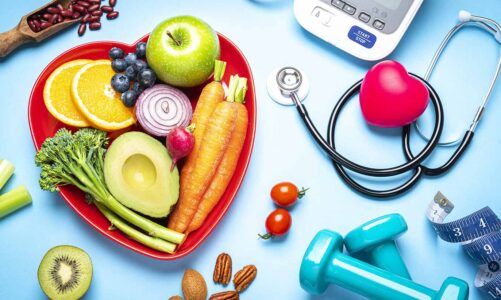Ultra-processed foods have become increasingly prevalent in modern diets, contributing to a rise in obesity and weight-related health issues. These highly processed foods are typically high in calories, added sugars, unhealthy fats, and sodium, while being low in essential nutrients. While they may be convenient and tasty, they can significantly hinder weight loss efforts. In this article, we will explore the ways in which ultra-processed foods prevent weight loss and the importance of choosing whole, nutritious foods for a successful weight management journey.
What are Ultra-Processed Foods?
Ultra-processed foods are industrial formulations made from refined ingredients and additives. They often undergo multiple processes, including hydrogenation, extrusion, and high-temperature treatments. Examples of ultra-processed foods include packaged snacks, sugary cereals, fast-food items, frozen meals, and sugary beverages. These foods are typically highly palatable, leading to overconsumption and a preference for their taste over natural, whole foods.
Lack of Satiety and Overeating
One of the primary reasons ultra-processed foods prevent weight loss is their lack of satiety. These foods are designed to be hyper-palatable, with a combination of added sugars, unhealthy fats, and artificial flavors that make them irresistible. As a result, people tend to overconsume these foods, leading to excessive calorie intake without feeling satisfied or full.
Moreover, ultra-processed foods are often low in dietary fiber, which plays a crucial role in promoting satiety. Fiber-rich foods help slow down digestion, keeping you fuller for longer and reducing overall calorie intake. By replacing whole, fiber-rich foods with ultra-processed options, individuals are more likely to consume a higher number of calories, hindering their weight loss efforts.
Impact on Hormones and Metabolism
Ultra-processed foods can disrupt hormonal regulation and metabolism, further complicating weight management. Consuming high levels of added sugars and unhealthy fats found in these foods can lead to insulin resistance, where the body becomes less responsive to insulin, a hormone responsible for regulating blood sugar levels.
Insulin resistance can lead to elevated blood sugar levels, increased fat storage, and reduced fat burning, making weight loss more challenging. Additionally, excessive sugar consumption can cause fluctuations in blood glucose levels, leading to cravings and overeating, creating a vicious cycle that inhibits weight loss progress.
High Energy Density and Caloric Intake
Ultra-processed foods are typically energy-dense, meaning they contain a high number of calories per serving without offering substantial nutritional value. These foods often lack essential vitamins, minerals, and micronutrients that are essential for overall health and well-being.
As a result, individuals consuming ultra-processed foods tend to exceed their daily calorie needs without meeting their nutritional requirements. This excessive caloric intake contributes to weight gain and prevents weight loss, as the body stores excess calories as fat.
Disruption of Gut Microbiota
Emerging research suggests that ultra-processed foods can negatively impact gut health and disrupt the balance of the gut microbiota. A diverse and balanced gut microbiome is essential for maintaining a healthy weight and overall well-being.
Ultra-processed foods often contain emulsifiers, preservatives, and artificial additives, which can alter the gut microbiota’s composition and function. Dysbiosis, an imbalance in gut bacteria, has been linked to obesity and metabolic disorders, making it harder for individuals to lose weight effectively.
Psychological Factors
Beyond the physiological impact, ultra-processed foods can also have significant psychological effects that hinder weight loss. The high palatability and addictive nature of these foods can create emotional attachments, leading to comfort eating and using food as a coping mechanism for stress, anxiety, or boredom.
Moreover, the pleasure derived from consuming ultra-processed foods can trigger reward centers in the brain, leading to a craving for more of these foods. Breaking free from the cycle of emotional eating and food cravings is essential for successful weight loss.
Lack of Nutrient Density
Nutrient density refers to the amount of essential nutrients, such as vitamins, minerals, and antioxidants, in a food relative to its calorie content. Ultra-processed foods are often low in nutrient density, providing empty calories without essential nutrients.
When individuals consume these foods, they may experience nutrient deficiencies despite meeting their calorie needs. This lack of essential nutrients can lead to increased hunger and food cravings as the body seeks to fulfill its nutritional requirements. Inadequate nutrient intake can also impact metabolism, energy levels, and overall well-being, making weight loss more challenging.
Encouraging Weight Loss through Whole, Nutrient-Rich Foods
To overcome the obstacles posed by ultra-processed foods and promote weight loss effectively, focusing on whole, nutrient-rich foods is crucial. Here are some tips to encourage weight loss through healthier food choices:
1. Emphasize Whole Foods
Prioritize whole foods such as fruits, vegetables, whole grains, lean proteins, and healthy fats. These foods are naturally low in calories, high in fiber, and rich in essential nutrients, supporting weight loss and overall health.
2. Read Food Labels
When purchasing packaged foods, read the labels carefully. Avoid products with added sugars, unhealthy fats, and high levels of sodium. Look for products with minimal ingredients and recognizable, whole-food components.
3. Cook at Home
Cooking at home allows you to control the ingredients and cooking methods, promoting healthier meals. Experiment with fresh herbs, spices, and healthy cooking techniques to enhance flavor without relying on excessive salt, sugar, or unhealthy fats.
4. Practice Mindful Eating
Engage in mindful eating practices to develop a healthier relationship with food. Pay attention to hunger and fullness cues, eat slowly, and savor the flavors of whole, nutrient-rich foods.
5. Stay Hydrated
Drinking plenty of water throughout the day can help curb appetite and prevent overeating. Sometimes, feelings of hunger can be mistaken for thirst.
6. Seek Support
Consider seeking support from a registered dietitian, nutritionist, or weight loss counselor. Professional guidance can help you create a personalized plan for achieving your weight loss goals while ensuring proper nutrition.
Conclusion
Ultra-processed foods pose significant challenges to weight loss efforts due to their lack of satiety, impact on hormones and metabolism, high energy density, and potential disruption of gut health. Making healthier food choices, focusing on whole, nutrient-rich foods, and practicing mindful eating are essential strategies to overcome the obstacles presented by ultra-processed foods. By prioritizing nutrition, physical activity, and overall well-being, individuals can achieve successful and sustainable weight loss, ultimately improving their health and quality of life.



